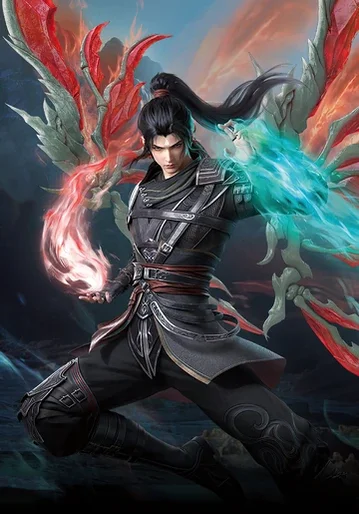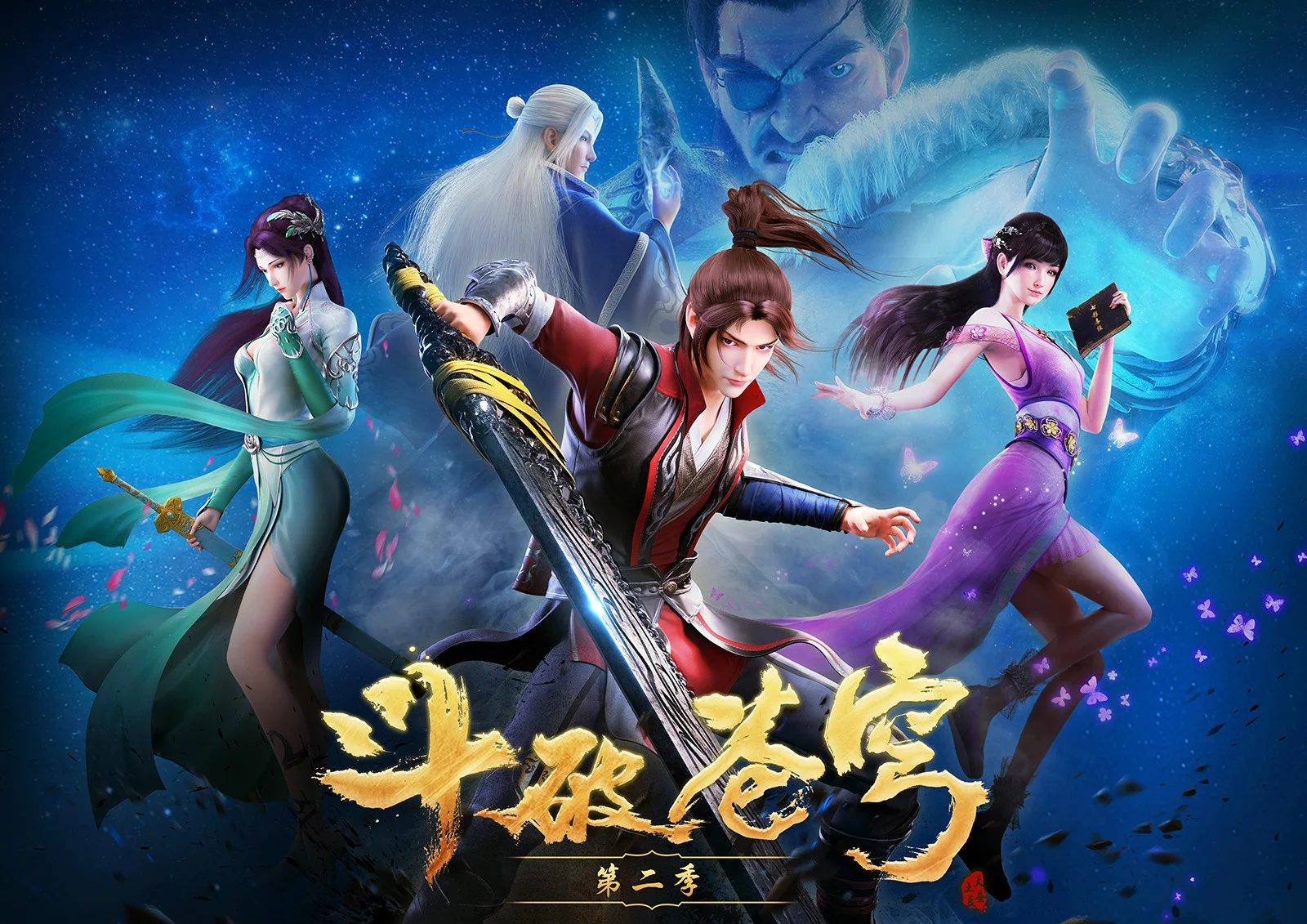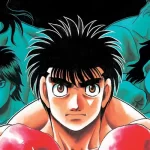Battle Through the Heavens (Chinese: 斗破苍穹; pinyin: Dòupò Cāngqióng; lit. ‘Fight Through The Sky’) is a Chinese television series that captured the imagination of audiences with its unique blend of fantasy, Wuxia, and adventure. Adapted from the popular novel Doupo Cangqiong by Tiancan Tudou, the series first aired on Hunan TV from September 3, 2018, to October 25, 2018, and has since become a significant part of the Chinese entertainment landscape.
Table of Contents
Background and Storyline
The series centers around Xiao Yan (played by Leo Wu), a young boy who suffers a tragic loss at a tender age when his mother, Gu Wenxin (Carman Lee), is mysteriously killed. Raised by his father, Xiao Zhan (Yu Rongguang), Xiao Yan’s life takes a complicated turn when, despite his rigorous martial arts training, he fails to make any progress. This stagnation is due to a mysterious ring left behind by his mother, which unbeknownst to him, has been absorbing all his energy.
Xiao Yan’s life changes dramatically when he encounters Yao Chen (Baron Chen), an old man connected to the ring. With Yao Chen’s guidance, Xiao Yan begins to make incredible strides in his martial arts abilities. As he grows stronger, he unravels the mystery behind his mother’s death and the forces that orchestrated it. His journey leads him to Jianan Academy, where he makes allies but also faces new challenges. As Xiao Yan’s family faces devastation, he embarks on a perilous quest for revenge, determined to bring justice to those who wronged him.
https://youtube.com/playlist?list=PLwJAwkKCGfFNY-9gOwREI6-ZEisdx8KP9&si=MHFuSARBJrSXwzt_
Character Analysis
Xiao Yan’s character development is one of the core strengths of *Battle Through the Heavens*. Starting as a seemingly ordinary boy burdened by a dark past, he evolves into a powerful and determined martial artist. His journey is not just about gaining physical strength but also about discovering the truth behind his family’s downfall and seeking justice.
Yao Chen, the mysterious elder, plays a pivotal role in Xiao Yan’s transformation. His wisdom and connection to the past serve as both a guide and a catalyst for Xiao Yan’s growth. The relationship between Xiao Yan and Yao Chen is central to the story, symbolizing the transfer of knowledge and the importance of mentorship in martial arts traditions.
Other key characters, like Xiao Zhan and Gu Wenxin, provide emotional depth to the story. Xiao Zhan’s silence regarding his wife’s death adds layers of mystery and tension, while the memory of Gu Wenxin serves as a driving force for Xiao Yan’s actions. The supporting cast, including allies and antagonists at Jianan Academy, contribute to the rich tapestry of relationships that define the series.

Themes and Genres
At its heart, Battle Through the Heavens is a story of revenge, justice, and personal growth. Xiao Yan’s quest to avenge his mother’s death is a classic tale of retribution, but the series delves deeper into the implications of justice in a world governed by martial prowess and power.
The series also explores the concept of fate and destiny, particularly through Xiao Yan’s connection to the mysterious ring and his eventual discovery of his true potential. Themes of loyalty, friendship, and honor are woven throughout the narrative, making it more than just an action-packed adventure.
The blending of genres is another standout feature of Battle Through the Heavens. As a Wuxia series, it adheres to traditional martial arts elements, but it also incorporates fantasy and romance, creating a multi-layered experience for viewers. The fantasy elements, such as magical artifacts and supernatural abilities, add a sense of wonder and elevate the stakes of Xiao Yan’s journey.
Production and Adaptation
The adaptation of Battle Through the Heavens from novel to television was a significant undertaking. Directed by Yu Rongguang, the series was brought to life through the combined efforts of Wanda Media and New Classics Media. The production took place in various iconic locations, including Hengdian World Studios and Xiangshan World Studio, as well as picturesque regions like Yunnan and Duyun.
The visual aesthetic of the series, combined with its epic scale, made it a standout production in 2018. The attention to detail in the costumes, set design, and martial arts choreography helped immerse viewers in the fantastical world of Battle Through the Heavens.
Comparing the series to the original novel, there are notable differences in pacing and character development, which is typical of adaptations. While some fans of the novel may have preferred a more faithful retelling, the series succeeded in capturing the essence of the story and making it accessible to a broader audience.
Cultural Impact and Reception
Battle Through the Heavens was well-received in China and garnered attention for its high production values and engaging storyline. The series contributed to the growing popularity of Chinese fantasy dramas, both domestically and internationally. Its mix of traditional Wuxia elements with modern storytelling resonated with viewers, particularly younger audiences who are drawn to fantasy and adventure genres.
The series also sparked discussions about the adaptation process and the challenges of bringing beloved novels to the screen. Despite some criticisms regarding deviations from the source material, Battle Through the Heavens remains a significant work in the Chinese television landscape.
Conclusion
Battle Through the Heavens is more than just a television series; it is a cultural phenomenon that reflects the enduring appeal of Wuxia and fantasy genres in Chinese storytelling. Its rich narrative, complex characters, and themes of justice and personal growth have left a lasting impact on audiences.
As viewers continue to discover and revisit the world of Xiao Yan, Battle Through the Heavens will undoubtedly remain a touchstone for those seeking stories that blend action, emotion, and fantasy in a uniquely Chinese context. Its success is a testament to the power of well-crafted adaptations and the universal appeal of tales that transcend time and cultural boundaries.

Akane, known as akanecco._ on Instagram, is a passionate and experienced Anime creator specializing in anime content. With 317 engaging posts and a dedicated following of 12.7K, Akane has become a trusted authority in the anime community. Through detailed reviews, character explorations, and insightful analyses, Akane shares an extensive knowledge of anime, captivating and educating fans with every video. Follow Akane on Instagram to immerse yourself in the vibrant world of anime and join a community of like-minded enthusiasts here- Facebook and Pinterest.





